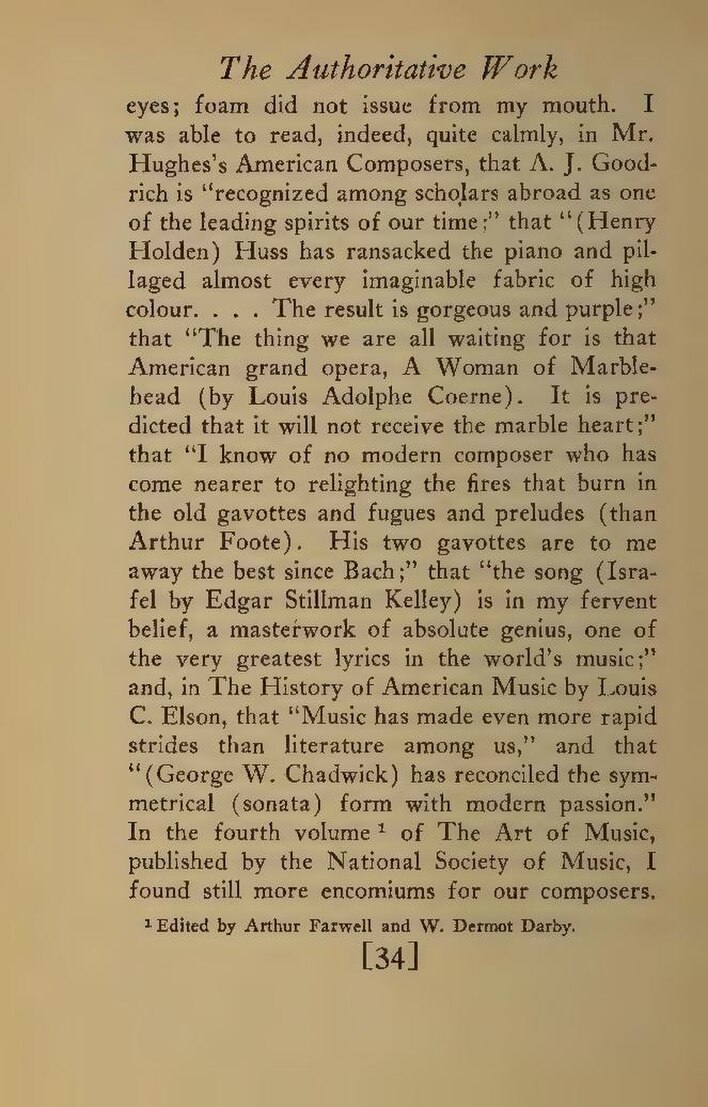eyes; foam did not issue from my mouth. I was able to read, indeed, quite calmly, in Mr. Hughes's American Composers, that A. J. Goodrich is "recognized among scholars abroad as one of the leading spirits of our time;" that "(Henry Holden) Huss has ransacked the piano and pillaged almost every imaginable fabric of high colour. . . . The result is gorgeous and purple;" that "The thing we are all waiting for is that American grand opera, A Woman of Marblehead (by Louis Adolphe Coerne). It is predicted that it will not receive the marble heart;" that "I know of no modern composer who has come nearer to relighting the fires that burn in the old gavottes and fugues and preludes (than Arthur Foote). His two gavottes are to me away the best since Bach;" that "the song (Israfel by Edgar Stillman Kelley) is in my fervent belief, a masterwork of absolute genius, one of the very greatest lyrics in the world's music;" and, in The History of American Music by Louis C. Elson, that "Music has made even more rapid strides than literature among us," and that "(George W. Chadwick) has reconciled the symmetrical (sonata) form with modern passion." In the fourth volume[1] of The Art of Music, published by the National Society of Music, I found still more encomiums for our composers.
- ↑ Edited by Arthur Farwell and W. Dermot Darby.
